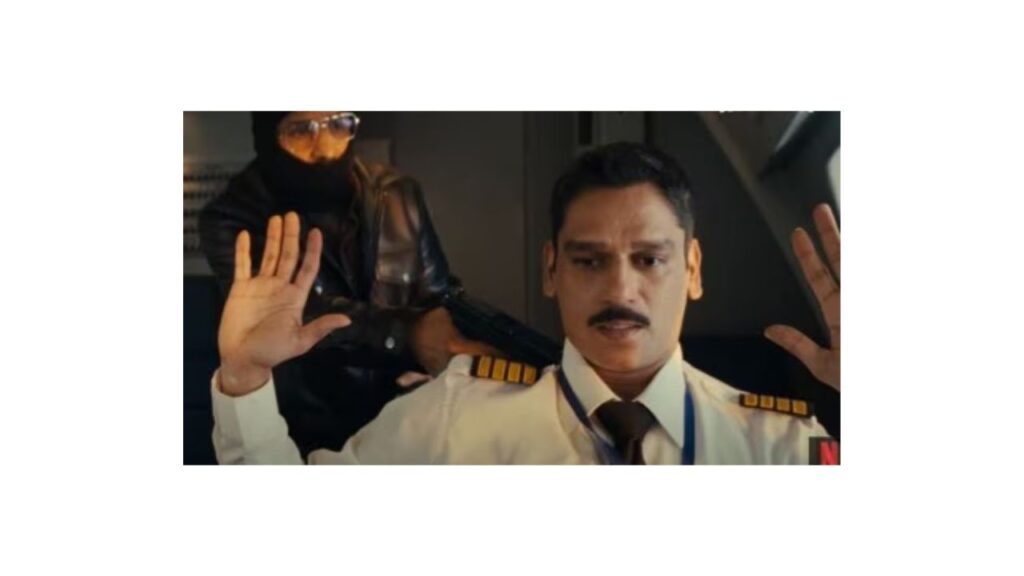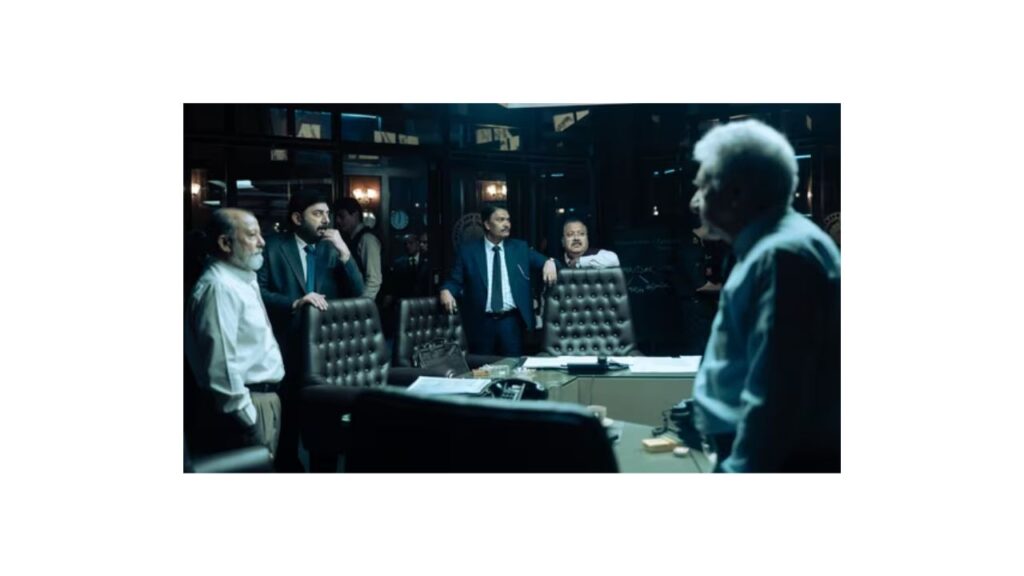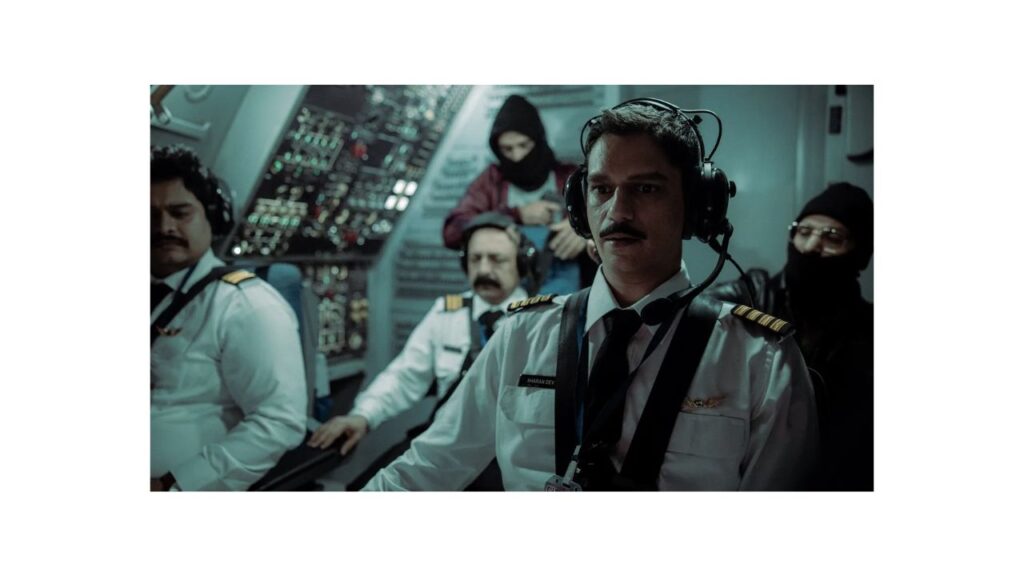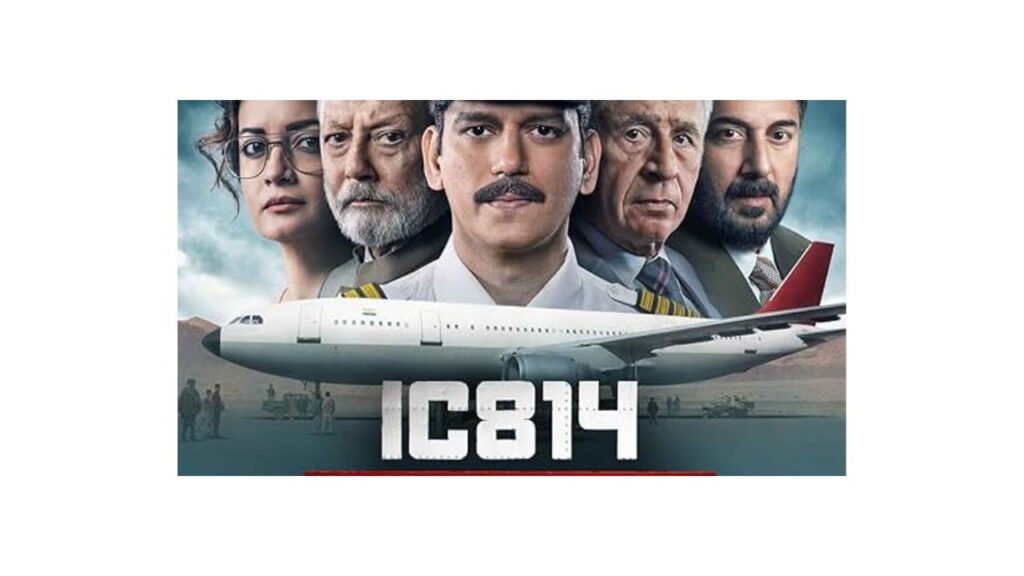IC 814 The Kandahar Hijack review: Anubhav Sinha milks a seasoned ensemble to tell a true story holistically that soars the most when it’s on ground.
IC 814 Review of the Kandahar Hijack: The closest Anubhav Sinha ever got to telling the untold true story of the migrant crisis fueled by the 2020 coronavirus lockdown was in his last film, Bheed (2023). He still had the freedom and luxury to use his imagination to piece together stories even though he was recording actual events. However, he masterfully accomplishes the Herculean task of narrating a historical hijack story through an accurate, impartial, and comprehensive lens in his debut web series.
Skimming the cheese
Indian Airlines Flight 814: The Kandahar Hijack is centered on the 1999 hijacking of the aircraft by five armed men while it was taking off from Kathmandu, Nepal, on its way to New Delhi. After that, the plane was diverted to several different countries before arriving in Kandahar, Afghanistan, which was then under Taliban rule and served as Osama bin Laden’s haven.
The hijack itself turns out to be an amazing, never-before-seen case study. The hijack occurred in the final week of December, and while the rest of the world was celebrating the start of a new millennium, Indian bureaucracy was having difficulty rescuing the 180 passengers on board. It transpires that the hijack during the final week of the previous millennium would establish the tone of terrorism in the new one.

Even though the truth is sometimes stranger than fiction, it’s not always as tasty, exciting, and well-rounded as a thriller. Anubhav has already entered a guilty plea for allegedly adding cheese—a layer of story demands—to a harsh sociopolitical drama in order to spice it up. However, there is very little room for error in IC 814: The Kandahar Hijack, and Anubhav decides to respect that. Rather than succumbing to the weight of accuracy, Anubhav chooses to rise to the occasion. It’s a satisfying narrative decision because he compensates for it with another, much more powerful decision to address all angles, be they left or right, small or large, historical or contemporary, or war or peace.
No hijinks in hijack
Therefore, it appears that Anubhav is not concentrating on creating a gripping hijack thriller. Although there isn’t much work in that genre in India, Ram Madhvani’s 2016 film Neerja is still the best. Similar to that true story, airline employees take pride in carrying their official responsibilities as a badge of honor. In her role as air hostess Indrani, Patralekhaa demonstrates a great deal of empathy by tending to the passengers as she would have her sick father who was waiting for her to return home.
We are also led to question whether Aditi Gupta, in her role as air hostess Chhaya, would have connected with a hijacker in a different reality by looking past her uniform. When interacting with machines, Vijay Varma’s Captain Sharan Dev emotes in the same way as he does with people. He is in equal measure shrewd, soft, generous, and efficient.

Some passengers have a back story, just like every hostage or hijack story ever told. While he doesn’t go into great detail, Anubhav provides us with enough information to ponder while we stick to the bigger picture. The story of an orthopedician who later tried to duck out of his duty as a father when he was left alone on a flight with his severely disabled son is similar to the story of an orthopedician who later tried to duck out of saving a severely wounded passenger by pointing to his area of expertise. This illustrates the larger pattern in which bureaucrats and politicians neglect their basic duty to the country and attribute any shortcomings to the ineptitude of rival political parties and intelligence services.
The excitement of Anubhav’s hijack story lacks the intensity, urgency, and regularity of the best ones because his focus is firmly on the wider picture. The ease with which hijackers can enter an aircraft carrying weapons and explosives is indicative of the regular security lapses at international airports. There’s a sense of predictability about the aircraft even when they take command, as if everyone was ready for it. But when it’s being forced to land, that’s when the most thrilling moments occur. In the scene where he pilots the plane at the last minute to return to the Lahore runway after first being refused permission to land, Vijay Varma is amazing.
On the sixth day of the hijacking, the subversion of the genre—having the passengers and hijackers play antakshari together and trade cigarettes—adds a strangely relatable element. And the airline crew plans to outnumber the armed hijackers and take them out of the air in the very next moment. It only demonstrates how the passengers, a representative sample of the general public, frequently become numb to egregious injustices before resuming coercive action the very next time.
Soars on the ground
If one eye is focused on the hijacked aircraft, the other is focused on what’s going on in Indian intelligence agencies behind closed doors. Pankaj Kapur plays the Minister of External Affairs, Naseeruddin Shah is the National Security Advisor, Aditya Srivastava is the RAW Secretary, Kumud Mishra is the RAW Joint Secretary, Kanwaljit Singh is the Director of the Intelligence Bureau, Manoj Pahwa is the Additional Director of the IB, and Aravind Swamy and Dibyendu Bhattacharya are the MEA officers. Anubhav puts together an Avengers-like cast of Indian actors. In an early scene, all nine of these leading ladies share a room. While not all of them have much screen time, a weaker actor could have easily destroyed the scene. Rather than acting and speaking, they are all experts at responding and acting.
However, Anubhav could have hired better candidates for the hijackers if he had access to such exceptional talent. Rajiv Thakur, who gained notoriety for his humorous appearance on The Great Indian Kapil Show, plays a menacing and uncompromising hijacker with a borrowed British accent that is only marginally effective. However, a more experienced actor could have given the important role more weight and emphasis. His discussions with Manoj Pahwa’s hard-bitten IB officer seem lopsidedly biased in favor of the latter. Recall the harm Jim Sarbh caused to Neerja. The role of the chief hijacker in this show could have been greatly enhanced by a younger, more skilled actor. As it happened, Anubhav didn’t have to search far: Anupam Tripathi, renowned for Squid Game, makes his on-screen debut in India with this one a a gritty RAW agent, could’ve added more meat and ritz to the hijacker’s role.

Even though most of the nine actors on the special task force have very little to do and must share a piece of the cake, some of them give us memorable moments. It’s impressive to watch the cinematic titans, Naseeruddin Shah and Pankaj Kapur, who are brothers-in-law, share screen time following the success of cult films such as Maqbool (2003) and Jaane Bhi Do Yaaro (1983). Their exchanges, replete with opposing viewpoints and regard for one another, are everlasting treasures. It’s also good to see Tamil actor Aravind Swamy return to a Hindi project. He plays a smooth-talking, soft-spoken South Indian officer, and he stands out for being an outsider who thinks and behaves differently without putting his coworkers in danger. India most needed his diplomacy to get out of sticky situations. like those. Interestingly, Naseeruddin, Pankaj, and Aravnid have headlined two watershed Indian films on terrorism – A Wednesday (2008) and Roja (1991).
Additionally, Anubhav sees action from his go-to guys, Kumud Mishra and Manoj Pahwa. In Mulk (2018) and Article 15, he gave Manoj some of his most distinctive, chunkiest parts (2019). Anubhav blends Manoj’s trademark comedic style with a serious role in his debut show, and the result is a delicious combination. Even in the most dire circumstances, he can make us laugh, and his tough stance on fighting terrorism makes us laugh rather than cringe. Though Kumud appears on screen more frequently than other talented actors such as Dibyendu, Kanwaljit, Sushant (who merely poses in his uniform), and even Aditya Srivastava (who does have a memorable scene where he persuades the chief minister of Jammu & Kashmir to sign on an agreement without any speaking part – because the CM keeps cutting him off.
Holistic picture
The characters played by Manoj and Aravind, who hold diametrically opposed political views, have a delightful exchange in which they compare coffee and tea to religion and blind faith, respectively. This captures the diversity that runs throughout the entire program. Actually, the essence of IC 814: The Kandahar Hijack is its all-encompassing gaze. When you can present India in all its varied, shimmering splendor, who needs cheese? Anubhav also makes sure the women don’t fall behind. Even though Pooja Gaur never volunteered to be a soldier’s wife, her character serves as a metaphor for the forbearance and endurance of military spouses who wait in vain for better days ahead. An additional factor that draws attention to the conflict between newspapers and television (print media in a hurry) in late 1990s India is a radiant Dia Mirza and a charged Amrita Puri’s characters.

However, Anubhav is unable to wrap up the lengthy screenplay, just as he is unable to provide each actor with material worthy of their caliber. Who was the RAW officer in the aircraft whose name the intelligence services and the media had deleted? Did he have anything to do, even indirectly, with the rescue operation at Amritsar airport stalling? The screenplay, written by Trishant Srivastava (Chor Nikal Ke Bhaga) and Anubhav, and the story by Adrian Levy (The Siege: The Attack on the Taj), are impressively tight in some places and sometimes stretched too much. A voiceover that abruptly interrupts to explain the political background also belittles the intelligence of the listeners. Despite attempting to be comprehensive, the show ultimately has enough for everyone to admire and something for everyone to crib about.
IC 814: The Kandahar Hijack, however, fundamentally raises more questions than it conveniently provides answers for. Was it the correct thing to do at the time, considering the far-reaching effects that continue to plague our country today? Are civilians in a war they did not volunteer for to be treated like casualties? Is there another essential duty for a civilian than to hold elected officials accountable? Should a show of force be prioritized over diplomacy? Although the show did not depict the actions of the politicians at the time, the bureaucracy effectively portrays the coalition government of that era, with its members voicing divergent opinions, assigning blame, and ultimately striving to fulfill their duty to their constituents, whether or not it is successful.
Netflix India is currently streaming IC 814: The Kandahar Hijack.
